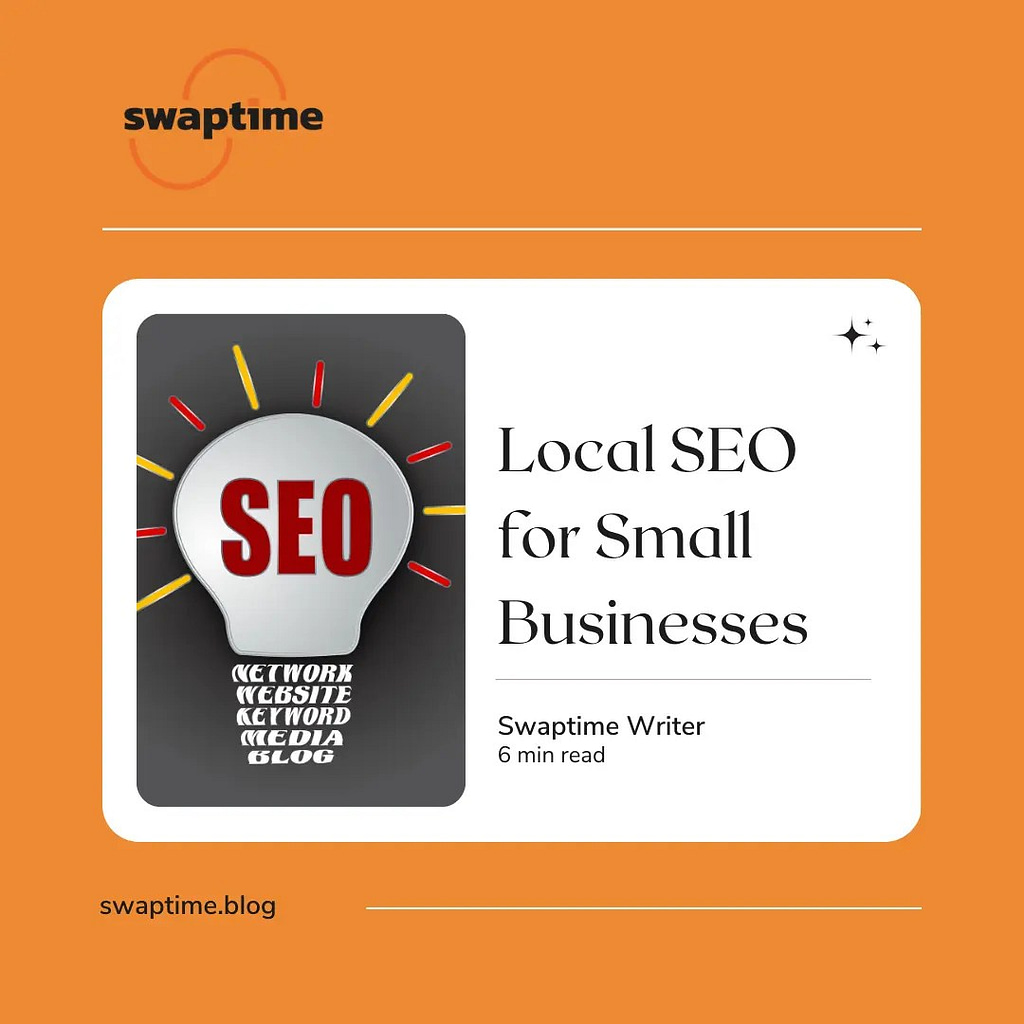In digital marketing, local SEO (Search Engine Optimization) is an important tool for small businesses aiming to improve their online presence and attract nearby customers. While traditional SEO focuses on improving a website’s visibility on a global scale, local SEO targets geographic-specific searches, making it indispensable for businesses operating in specific communities or regions.
Understanding SEO
SEO, or Search Engine Optimization, is the practice of enhancing a website’s visibility and ranking on search engine results pages (SERPs). This involves optimizing various elements of a website, such as content, keywords, meta tags, and backlinks, to align with search engine algorithms. The goal of SEO is to increase organic (non-paid) traffic by ensuring that the website appears prominently when users search for relevant terms. Good SEO strategies help improve the site’s relevance, authority, and user experience, ultimately driving more visitors and potential customers to the website. What then is local SEO?
What’s local SEO?
Local SEO revolves around optimizing your online presence to attract more business from relevant local searches. This strategy involves a combination of techniques aimed at making your business more visible in local search results on search engines like Google, Bing, and others. For instance, if you’re in the UK, when potential customers who are in the UK search for products or services near them, local SEO helps your business appear prominently in their search results.
Benefits of local SEO for small businesses
Increased visibility
SEO helps small businesses rank higher in search engine results, making them more visible to potential customers who are actively looking for their products or services. When your business appears at the top of search results, it attracts more clicks and increases brand awareness. Enhanced visibility means that more people are likely to visit your website, learn about your offerings, and eventually convert into customers.
Targeted traffic
By optimizing for relevant keywords, SEO attracts more qualified and interested visitors to your website, leading to higher conversion rates. Unlike broad marketing strategies, SEO focuses on reaching people who are specifically searching for what you offer. This targeted approach ensures that the traffic coming to your site is more likely to be interested in your products or services, resulting in a better return on investment.
Cost-effective marketing
Unlike paid advertising, SEO is a cost-effective marketing strategy that focuses on organic search traffic, providing long-term benefits without ongoing costs. Once your website is optimized, it continues to attract organic traffic without the need for continuous financial investment. This contrasts with pay-per-click (PPC) advertising, where costs can quickly add up.
Brand credibility and trust
High search rankings can enhance your business’s credibility in the eyes of consumers, as people often trust the results presented by search engines. When your business appears at the top of search results, it is seen as a leader in your industry or niche. This trust can significantly influence purchasing decisions, as consumers are more likely to choose a brand that appears credible and authoritative.
Competitive advantage
SEO can help small businesses compete with larger companies by leveling the playing field and allowing them to attract local customers who may otherwise go to bigger competitors. By focusing on specific geographic areas and niche markets, small businesses can carve out a competitive edge. Effective local SEO strategies can help small businesses appear in local search results, maps, and directories, which makes it easier for local customers to find them.
Long-term results
While SEO requires time and effort to implement, the results are often long-lasting, providing sustained traffic and visibility for your business. Unlike other marketing strategies that may offer short-term gains, the benefits of SEO accumulate over time. Once your website achieves high rankings, it can maintain those positions with regular updates and maintenance. This long-term approach means that the initial investment in SEO continues to pay dividends, helping your business grow steadily and maintain a strong online presence.
Strategies to optimize your small business for local SEO
Google My Business (GMB) optimization
One of the first strategies for optimizing your small business for SEO is claiming and verifying your Google My Business listing. Ensure your business is listed on GMB and verify your ownership. This is the beginning of your local SEO efforts. Do well to complete your profile and regularly update it. Your business name, address, phone number, website, hours of operation, and business categories. Also, add a detailed business description that includes relevant keywords.
Local keyword optimization
Another strategy is to identify keywords that your local customers are using to find businesses like yours. For instance, if you sell men’s footwear in Paris, you can optimize your keywords to be “men’s sandals in Paris”. Use tools like Google Keyword Planner, Ahrefs, or Moz to find relevant local keywords. Also, integrate local keywords naturally into your website’s content, including titles, meta descriptions, headers, and body text, ensuring that each page targets specific keywords related to your services and location.
Local citations and directories
Ensure your business name, address, and phone number (NAP) are consistent across all online directories and citations. Inconsistencies can hurt your local SEO efforts. Regularly audit and clean up your NAP information to remove any outdated or incorrect listings. Tools like Moz Local can help with this process.
Online reviews and ratings
Actively manage and respond to reviews on Google, Yelp, Facebook, and other review platforms. Thank customers for positive reviews and address any issues raised in negative reviews professionally. You also need to develop a strategy to encourage customers to leave reviews. This could include follow-up emails, signage in your store, or incentives for leaving feedback. Display positive reviews and testimonials on your website to build trust with potential customers and improve conversions.
Mobile Optimization
Ensure your website is mobile-friendly with a responsive design that adapts to different screen sizes. Most people will likely use a mobile phone to access your website. It is important that they have a seamless experience navigating your site. Optimize your website’s loading speed by compressing images, leveraging browser caching, and minimizing code. Slow-loading sites can negatively impact user experience and search rankings. Also, test your website on various mobile devices to ensure that all features, buttons, and forms work correctly and are easy to use.
Social media engagement
Share content that is relevant to your local audience on social media platforms. Engage with local events, news, and trends to stay connected with your community. You can use geo-tagging features on platforms like Instagram and Facebook to tag your location in posts, making it easier for local users to find you. Engage with groups in your locality, participate in conversations, and use local hashtags to increase your visibility among nearby audiences.
FAQs
Is SEO worth it for local businesses?
Yes, SEO is worth it for local businesses because it significantly enhances their visibility to potential customers searching for services or products in their area. By optimizing for local search, businesses can attract highly targeted traffic, leading to increased foot traffic, phone calls, and ultimately, sales.
Is local SEO profitable?
Yes, local SEO is profitable because it directly targets potential customers in your immediate area who are actively searching for the products or services you offer. By improving your local search rankings, you can attract more relevant traffic to your business, leading to higher conversion rates and increased sales.
Can you do local SEO without a website?
Yes, you can perform local SEO without a website by optimizing your presence on various online platforms. Key steps include creating and optimizing a Google My Business (GMB) profile, ensuring your business information is accurate and consistent across online directories and social media profiles, and actively managing online reviews.
Conclusion
In today’s digital age, where everyone relies heavily on search engines to find local businesses, implementing a good local SEO strategy is important for small businesses looking to thrive in their communities. By optimizing your online presence to cater to local searches, you can improve your brand visibility, attract more customers, and ultimately sustainably grow your business.
ALSO READ:
Optimizing Your Business Page On LinkedIn: 10 Easy Steps
Content Marketing Hacks for Small Businesses
10 Marketing Trends to Watch Out For in 2024



